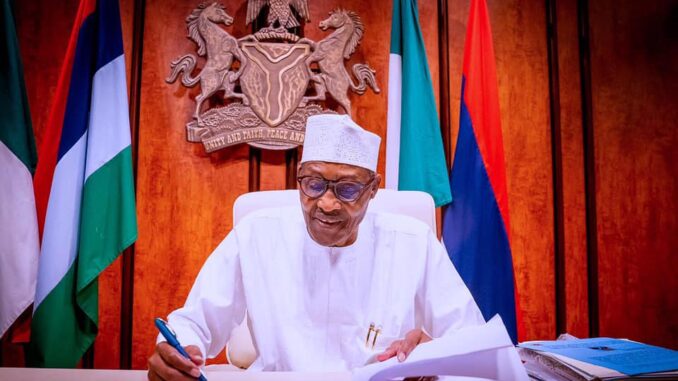
REPORTS from diverse sources point to a debilitating food insecurity crisis in Nigeria that may push the country further into fragility. While 11 international organisations working in concert with the European Union predict the number of hungry persons to rise to 38 million in West Africa by June, with Nigeria as the epicentre, the African Development Bank declared that hunger had become “a way of life” in the country and other African countries. The federal and state governments must therefore take strong measures to alleviate hunger.
The President, Major General Muhammadu Buhari (retd.), has the major responsibility to rein in the unsettling insecurity across the country. For Nigeria, hunger is also a reality long foretold. The United Nations Food and Agriculture Organisation in March updated its earlier warning on looming hunger; it said that 19.4 million may face acute food shortage between June and August. It stated that food insecurity would accentuate the security challenges.
The wider ramifications are too grim to contemplate for a country with 211 million people. Ultimately, the Federal Government’s expressed aim to increase the country’s food security index by 2025, for instance, will remain far-fetched. The government’s projection to reduce the prevalence of severe hunger from 19.6 percent in 2020 to 10 percent by 2025 will similarly be dead on arrival.
The chilling state of insecurity in Nigeria was brought home poignantly recently by the Chief of Defence Staff, Lucky Irabor. According to the CDS, 80 per cent of Nigeria’s Armed Forces personnel are currently deployed in all the 36 states of the federation performing internal security duties that should normally be undertaken by the police. This is a consequence of the harrowing experiences Nigerians have been going through in recent times in the hands of deadly non-state actors. Similarly, 26 units of OP MESA, a combined team of the police, the Nigerian Air Force, the Nigerian Navy and the Nigerian Army, are conducting law enforcement operations across the country. Apparently, this is a result of the weakened capacity of the police institution.
Nigerians are traumatised by relentless acts of terrorism, banditry, kidnapping and sundry criminality that make farming and other economic activities a most deadly adventure for many. A direct consequence of this is a food crisis, long predicted in a 2020 Global Report on Food Crises, jointly released by the Food Security Information Network and other groups. The report had warned that Nigeria was set to experience a lean food supply crisis as more than seven million people would suffer acute hunger.
Later, a World Food Programme report said that 15 countries, Nigeria inclusive, were currently afflicted with “very high levels of hunger.” It admonished world leaders to be proactive, as conflict and economic crises could escalate the situation. Sadly, the advice was not heeded in Nigeria as the country is already enmeshed in a food crisis. This is not helped by the devastating effect of the COVID-19 pandemic on the economy. Already, food prices have risen sharply, worsened by high energy and transportation costs.
Among other factors, the FAO identified insecurity, especially insurgency in the North-East states, mostly in Borno, Adamawa and Yobe; banditry and cattle rustling in some North-West states such as Sokoto, Katsina, Zamfara and Kaduna, as well as North-Central states of Benue, Plateau and Niger as key drivers to the upcoming food crisis. No part of the country is free from the blood-soaked grip of insecurity.
In fact, Nigeria is currently in a virtual war situation. This has dealt a huge blow to the country’s food production capacity. A tally compiled by this newspaper indicated that at least 352 farmers were killed or kidnapped in 12 months amid the rising insecurity in 2021. The lethargic response of the Buhari regime to the security challenge has ensured that instead of abating, life in Nigeria is approximating the Hobbesian state of nature; cruel, short, nasty and brutish.
In November 2020, about 76 peasant farmers were gruesomely massacred by Boko Haram insurgents in Borno State. The insurgents claimed the attacks were carried out in retribution for the farmers cooperating with the Nigerian military. The Presidency even blamed the farmers for not getting clearance from the military before going to their farms. This is most depressing. Farmers in Benue, Taraba, Nasarawa, and Plateau states have been on the receiving end of a seemingly endless orgy of violence orchestrated by murderous Fulani herders forcibly evicting farmers to make way for their cattle.
The ‘World Wealth Report’ published in 2019 identified three main reasons for lack of access to food – conflict, climate change and a weak economy. All are present in Nigeria, exacerbated by poor governance. Efforts should be made to crush insurgents and criminality. Forestation and irrigation schemes should be undertaken by the three tiers of government to reclaim land. The economy has to be revived by vigorous federal and state initiatives.
Instead of continuing to rely on the grossly inefficient, overwhelmed and over-centralised security architecture, states should intensify efforts to cobble regional security networks to secure their jurisdictions to facilitate farming. Other geopolitical zones should emulate the South-West states’ Amotekun corps and fashion out a similar security template. The South-East states should rethink their lukewarm attitude to the Ebubeagu agency and ensure its operational efficiency through adequate funding.
Aside from the security that scares away farmers, the poor state of infrastructure in the rural areas where a large percentage of the farming population resides is a major disincentive to the country’s efforts at ensuring food security. State governments should redress this. The imperative of providing good rural roads, off-grid electricity using solar so as to make life and living more conducive for rural dwellers cannot be overemphasised. The states need to accord topmost priority to rural infrastructure and agriculture with strong private sector participation.
END

Be the first to comment